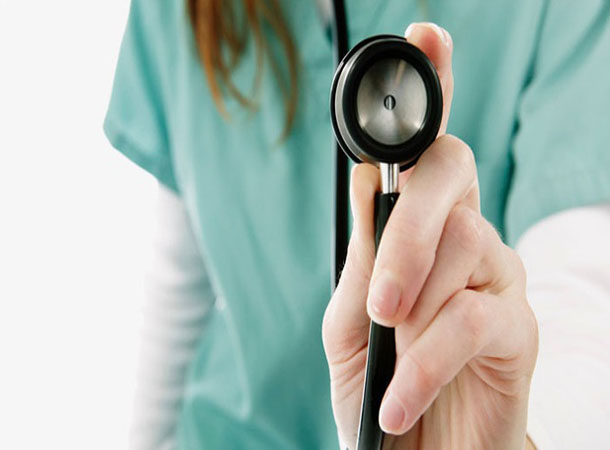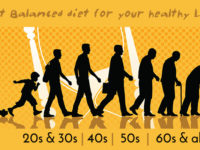It’s time to take charge of your health! Schedule an appointment with your health care provider to discuss what screenings and exams you need and when you need them. Regular health exams and tests can help find problems before they start. They also can help find problems early, when your chances for treatment and cure are better. By getting the right health services, screenings, and treatments, you are taking steps that help your chances for living a longer, healthier life. Your age, health and family history, lifestyle choices (i.e. what you eat, how active you are, whether you smoke), and other important factors impact what and how often you need healthcare. So here are the major health numbers that you should be aware of and stay healthy.
BMI
The body mass index (BMI) makes it possible to estimate the excess fat in the body and to define weight categories. The higher the BMI, the greater the risks related to obesity. To calculate it, you simply divide your weight in kg by your height in meters squared.
Formula for calculating BMI (kg/m²) = weight (kg)/height (m) * height (m)
Calculating BMI
BMI between 18.5 and 25: Normal Weight (Normal
BMI between 25 and 30: Overweight (Average)
BMI between 30 and 40: Obesity (Important)
BMI above 40: Morbid Obesity (servege)
CHOLESTEROL
Cholesterol — < 200
HDL — 40 — 60
LDL — < 100
VLDL — < 30
Triglycerides — < 150
—————————-
CHOLESTEROL
Borderline –200 — 239
High —- > 240
V.High — > 250
—————————-
LDL
Borderline –130 —159
High — 160 — 189
V.High — > 190
—————————-
TRIGLYCERIDES
Borderline – 150 — 199
High — 200 — 499
V.High — > 500
—————————-
PLATELETS COUNT
1.50 Lac —- 4.50 Lac
—————————-
BLOOD
Vitamin-D — 50 —- 80
Uric Acid — 3.50 — 7.20
—————————-
KIDNEY
Urea — 17 — 43
Calcium — 8.80 — 10.60
Sodium — 136 — 146
Protein — 6.40 — 8.30
—————————-
HIGH BP
120/80 — Normal
130/85 –Normal (Control)
140/90 — High
150/95 — V.High
—————————-
LOW BP
120/80 — Normal
110/75 — Normal (Control)
100/70 — Low
90//65 — V.Low
—————————-
SUGAR
Glucose (F) — 70 — 100
(12 hrs Fasting)
Glucose (PP) — 70 — 140
(2 hrs after eating)
Glucose (R) — 70 — 140
(After 2 hrs)
—————————-
HAEMOGLOBIN
Male — 13 — 17
Female — 11 — 15
RBC Count — 4.50 — 5.50
(million)
—————————-
PULSE
72 per minute (standard)
60 — 80 p.m. (Normal)
40 — 180 p.m.(abnormal)
—————————-
TEMPERATURE
98.4 F (Normal)
99.0 F Above (Fever)
*Heart Attacks And Drinking Warm Water:*
This is a very good article. Not only about the warm water after your meal, but about Heart Attack’s . The Chinese and Japanese drink hot tea with their meals, not cold water, maybe it is time we adopt their drinking habit while eating. For those who like to drink cold water, this article is applicable to you. It is very Harmful to have Cold Drink/Water during a meal. Because, the cold water will solidify the oily stuff that you have just consumed. It will slow down the digestion. Once this ‘sludge’ reacts with the acid, it will break down and be absorbed by the intestine faster than the solid food. It will line the intestine. Very soon, this will turn into fats and lead to cancer . It is best to drink hot soup or warm water after a meal.
Drink one glass of warm water just when you are about to go to bed to avoid clotting of the blood at night to avoid heart attacks or strokes.
Sources:
www.nearbuy.com
www.helioscopie.fr
www.who.int
www.mcgrainz.com
www.cdc.gov














